“Does it hurt?” Fafa asked. He knew I had a low pain threshold, and my biggest worry was that it would hurt. “No”, I answered him while still holding my breath. Even though the process didn’t break and I was in the hands of a capable artist, the sound of the tattoo machine still agitated me.
Getting A Tattoo in Japan
We landed in Tokyo only a few hours ago, and there, laying on the leather bed, I was glad that my brain was semi-jet-lagged and too tired to talk myself out of getting a tattoo.
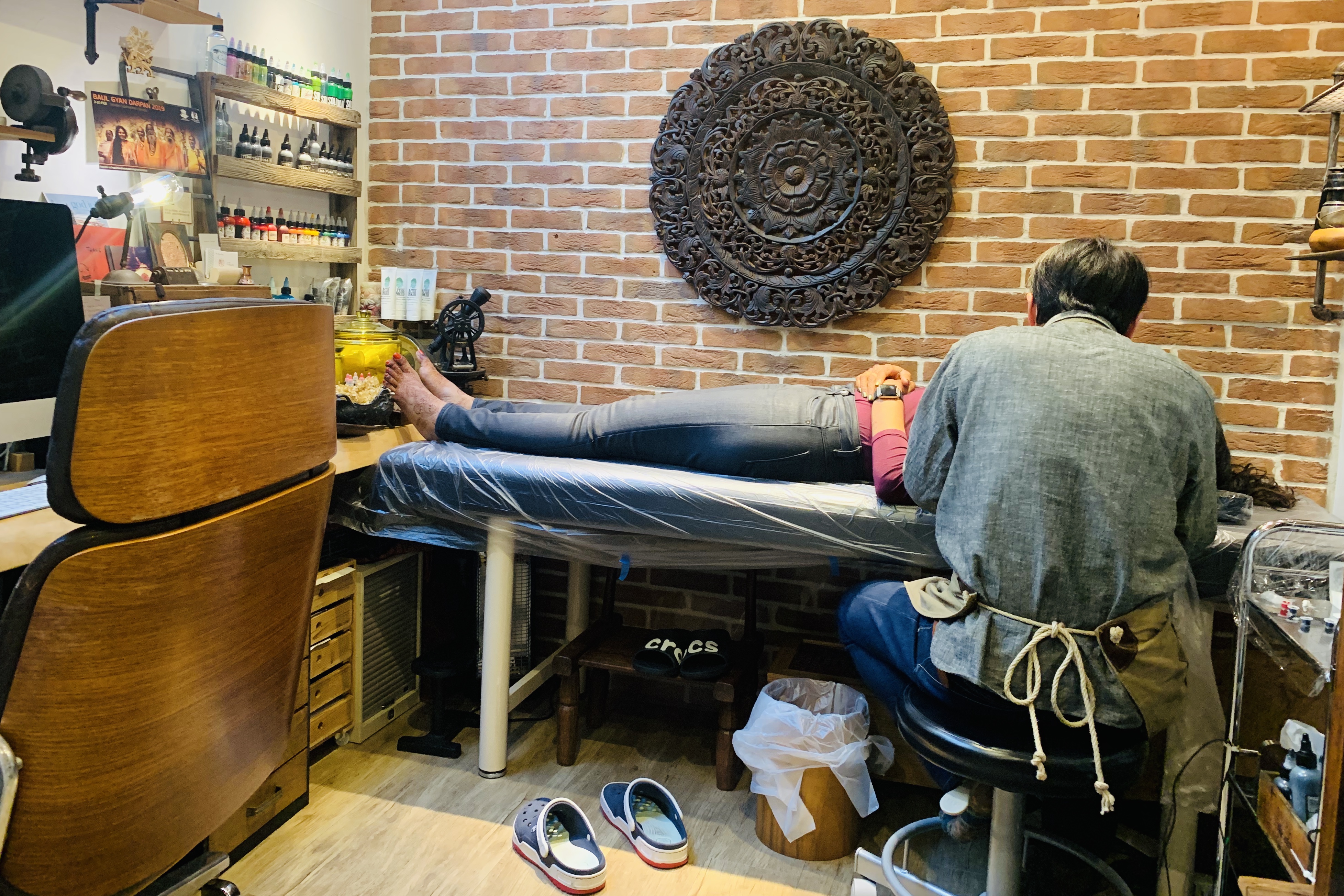
The process began when Ron, the tattoo artist, put the sticker of the design we agreed on months ago on my skin. I then gave him the green light, and he started working on drawing his art onto my skin with a machine that peeled off the top layer of the skin and injected colour into it.
It sounded painful, I know, but it wasn’t. The whole thing took less than half an hour, and it might have been longer than it should have been because he took such good care of doing it.
When it was Fafa’s turn, I wandered around. Ron’s studio didn’t look like the tattoo parlours I had encountered in Australia or Thailand, the ones I had been actively avoiding taking a peek at. It was tastefully decorated and hidden in the basement of his quaint little Japanese-style apartment, hidden because it’s illegal to be a tattoo artist in Japan if one doesn’t have a medical license.
Once Fafa was done, we made the payment, posed for a picture, and were invited to put pins on the world map displayed in his studio. The map was filled with hundreds of pins spread all over based on the origin of his clients. After putting our marks on his map, we thanked Ron profoundly and stepped out into the crisp winter night.
Torii Gate Tattoo
https://www.instagram.com/p/BrjJY8cFLK-/?utm_source=ig_web_copy_link
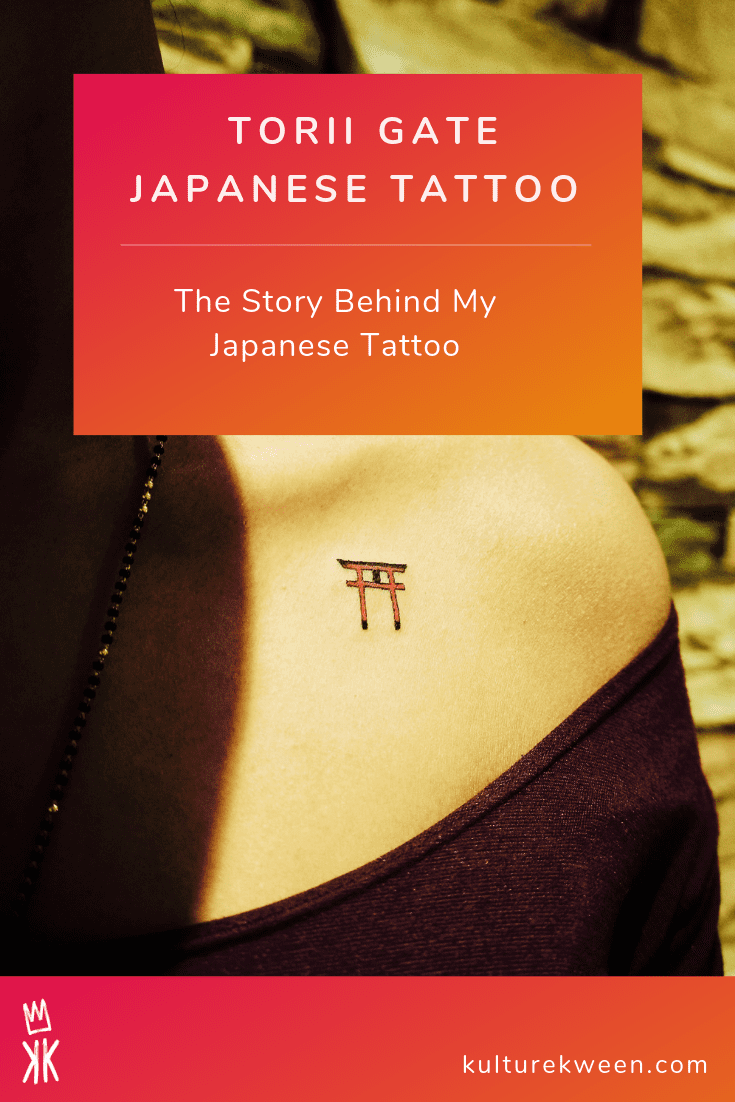
Back in the hotel, skin sore from the needle, I studied my coin-sized Torii Gate tattoo. Of course, there are many reasons for getting a tattoo, from reaffirming patriarchal norms to personal beliefs. Mine was purely out of my love for Japan and its culture.
Getting a Torii gate imprinted on my body wasn’t a minor decision. As someone who grew up feeling a little uneasy about some cultural appropriation of my own culture, I wondered whether choosing Torii Gate was me doing the same thing from the other side of the pendulum. But, In the end, I decided to go for it. Torii Gate has a special meaning for me. We just got married, and it would symbolise entering a sacred part of our lives. Together.
Before I got my Torii Gate tattoo, I wondered whether I would regret it one day. After all, it’s a permanent life decision like a marriage or having a child, something you would want to treasure forever. But, if you ask me the same question now, my answer will be the same as back then: I don’t know. I am happy looking down toward my left boob whenever I see it.
I also wondered how a Japanese or someone with Shinto faith would perceive my tattoo. If they ask, I will gladly explain that the Torii Gate tattoo marks my appreciation of Japanese culture. A culture that I want to learn more about and take part in celebrating.
Read More: Japanese Torii Gate Tattoo—my first and matchy tattoo I got with Fafa to commemorate our married life // A Viking Boat Tattoo in Copenhagen Meatpacking District—I got it while traveling around Scandi with my BFF and cousin // A Tale of The Tiger Tattoo—another semi-matchy tattoo with Fafa // Rainbow Merlion Solo Tattoo in Singapore.
Follow me on Instagram @KultureKween for more recent updates.
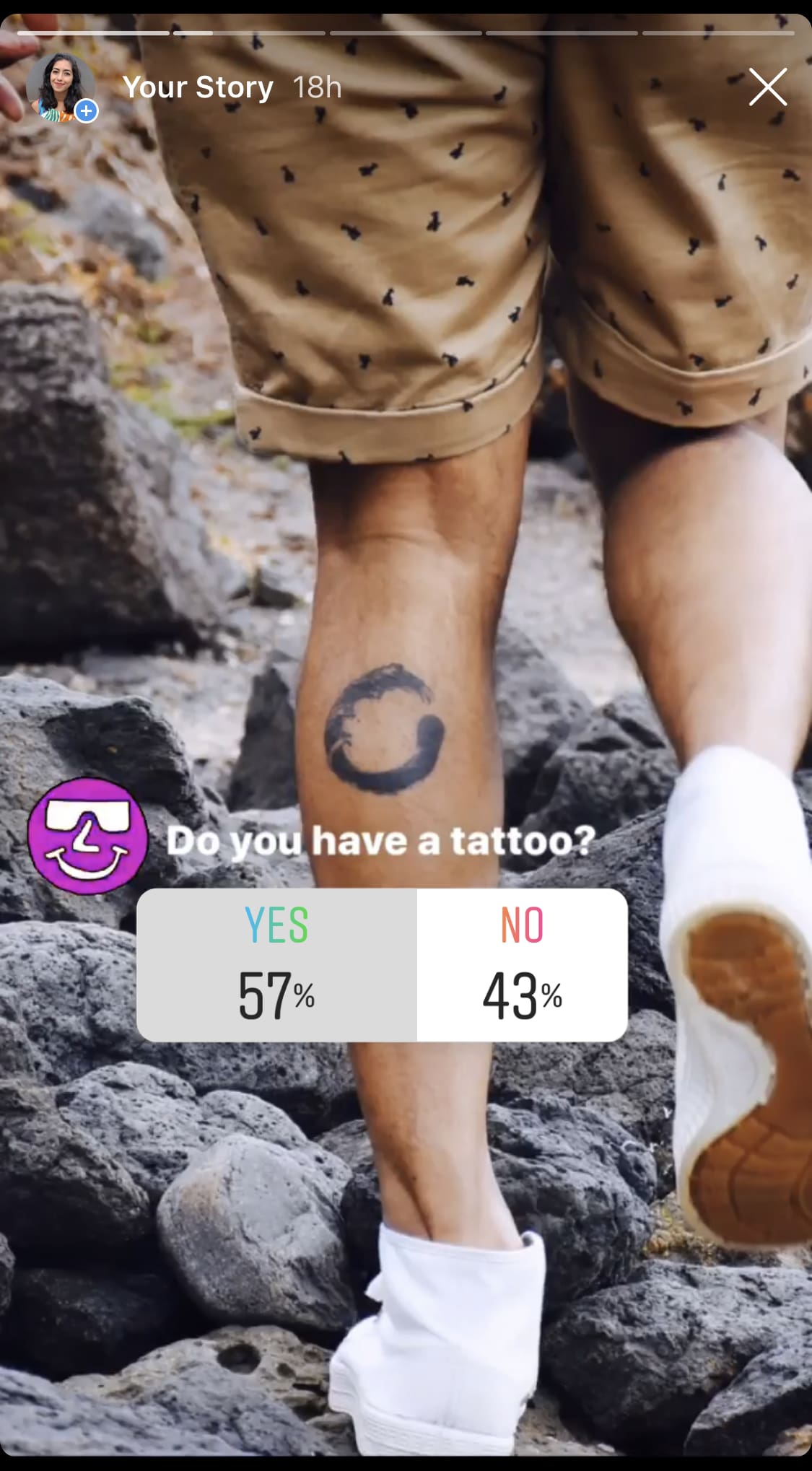

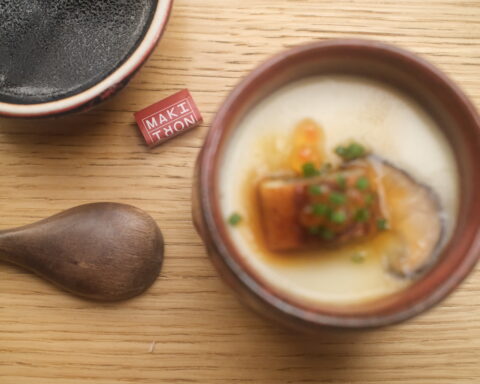
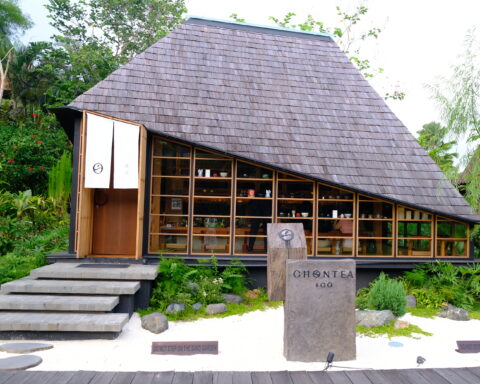
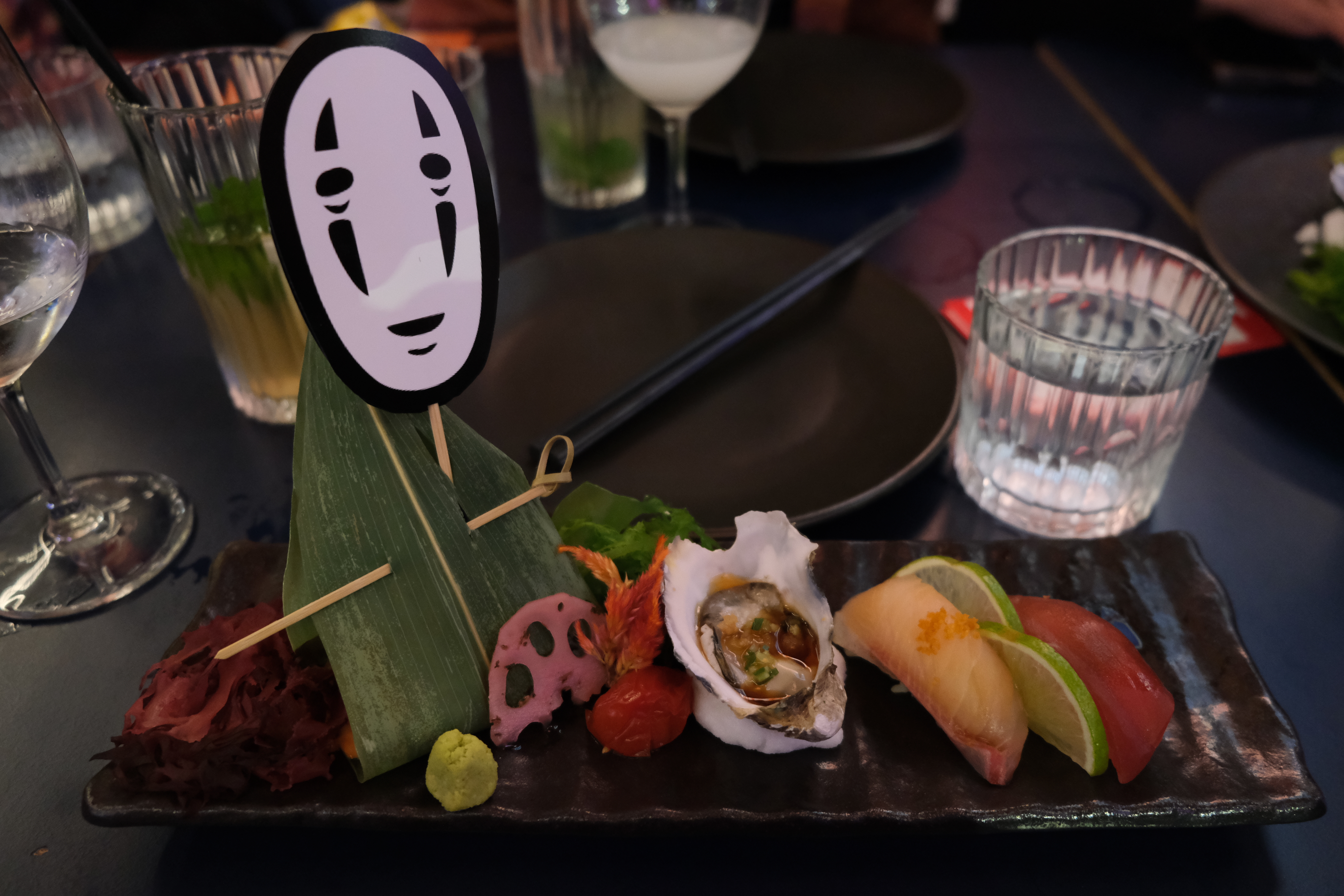
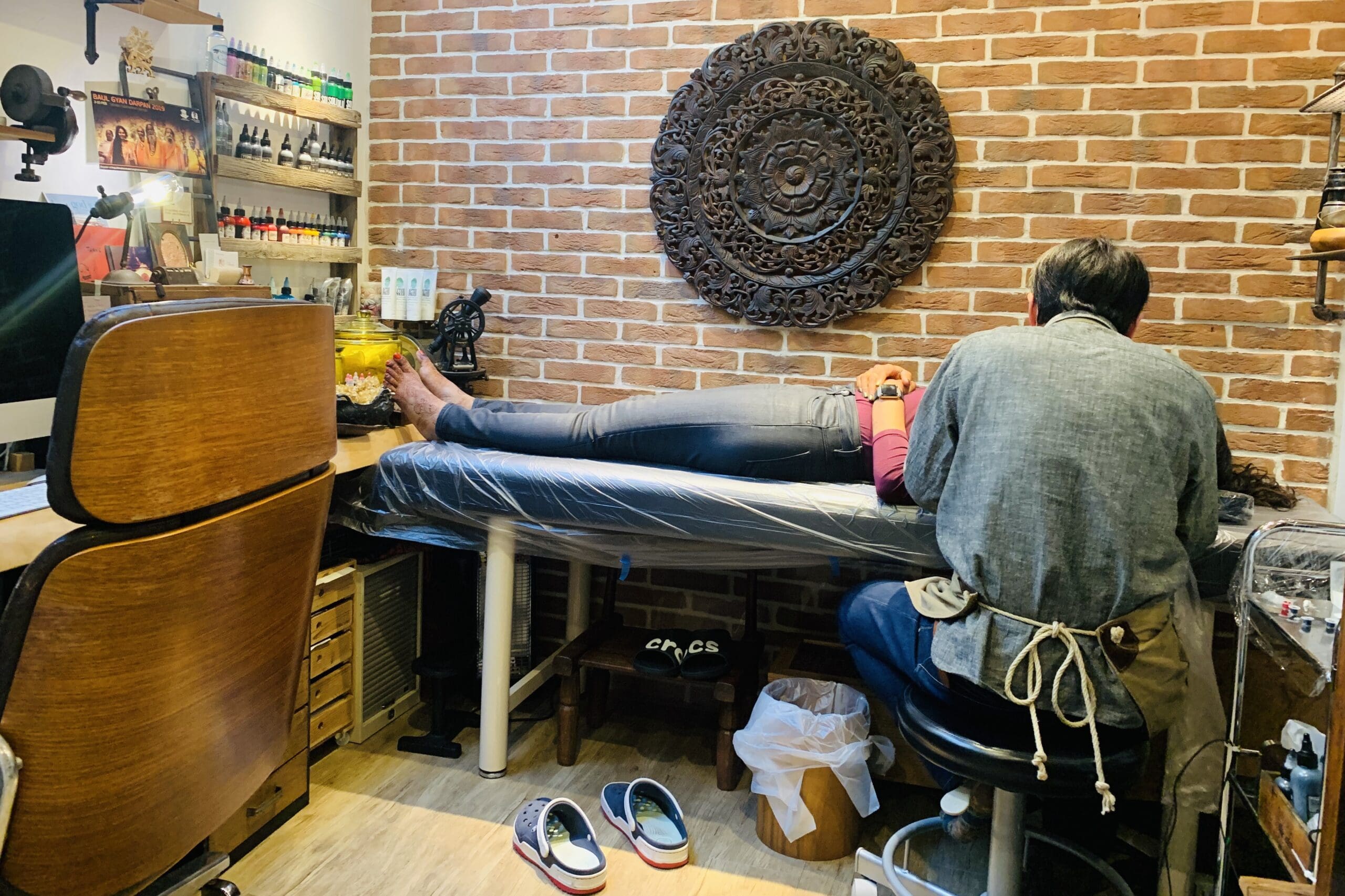
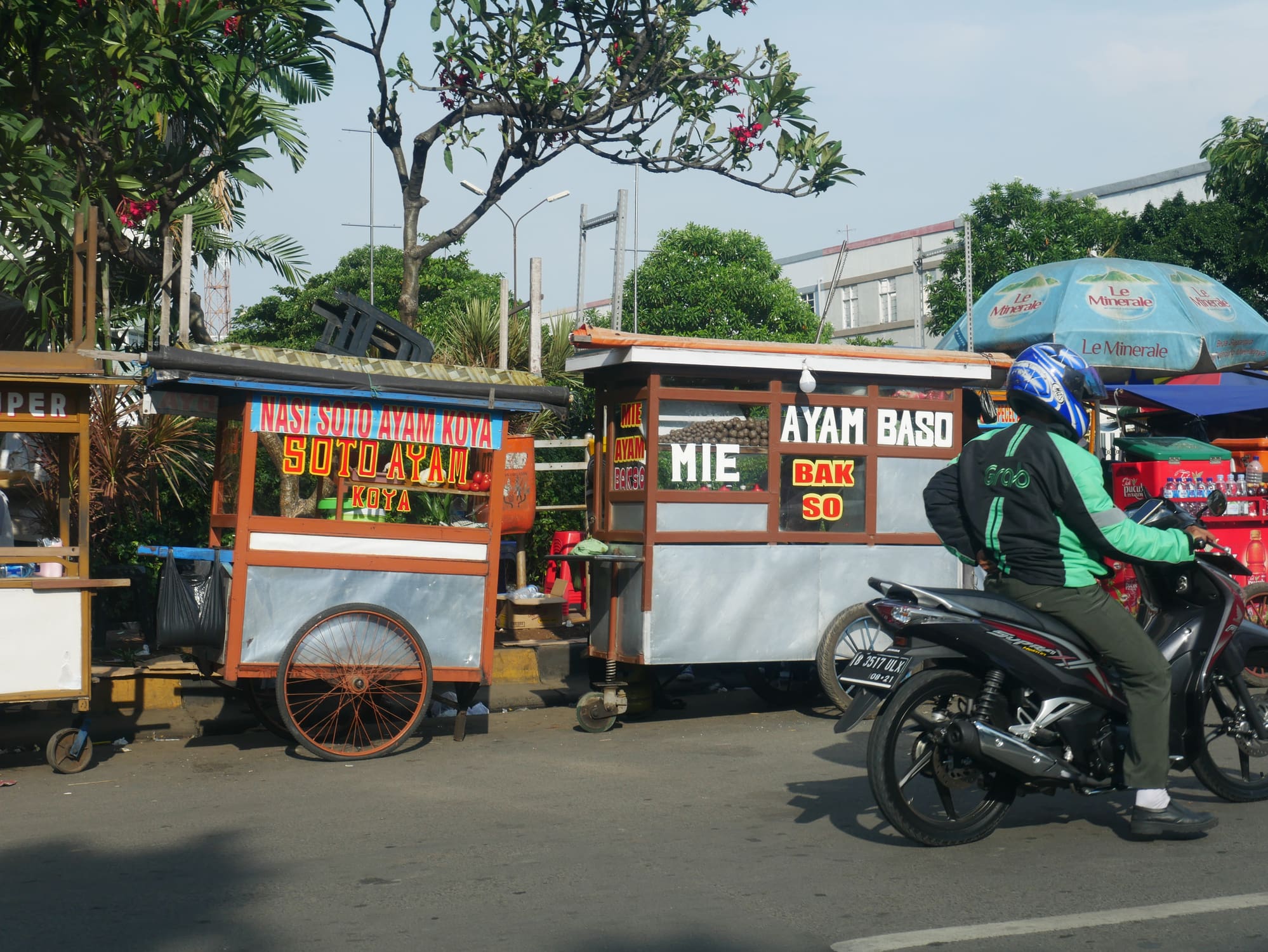
[…] More: Japanese Torii Gate Tattoo—my first and matchy tattoo I got with Fafa to commemorate our married life // A Viking Boat […]
[…] More: Japanese Torii Gate Tattoo—my first and matchy tattoo I got with Fafa to commemorate our married life // A Viking Boat […]
[…] is also officially one year since we got the matching Torii gate tattoo by Ron Sugano in Tokyo, […]
[…] Get a Japanese tattoo. […]
[…] The Story Behind My Japanese Torii Gate Tattoo […]
[…] and road trip across Europe, get a tattoo (my friend’s idea, back then I didn’t want a tattoo yet) to name some. There, high on Hongkongnese coffee, we excitedly planned our Europe […]
[…] The Story Behind My Japanese Torii Gate Tattoo […]
[…] it’s a Japanese temple” I said. It wasn’t exactly a Japanese temple, it was a red Torii gate tattoo, the fruition of my obsession with Japan culture. I love Japan so much that I want it to be a part […]